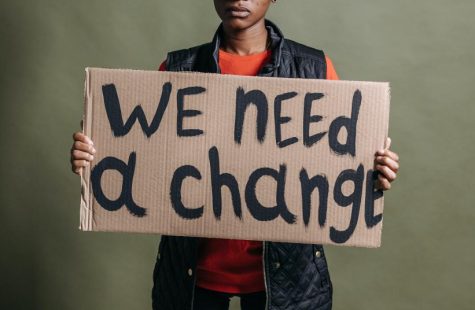Drop the myth: virginity and the hymen
April 7, 2022
Editor’s note: Students in Dr. Clark’s Argument and Advocacy class were asked to write a position piece over the article, “The hymen’s a myth and virginity’s a construct. It’s time to let both go” by Eliza Anyangwe. Anyangwe discusses hymenoplasty, reconstructive surgery for the hymen, also referred to as “virginity repair.” This is the third of three articles.
After reading The Hymen’s a Myth and Virginity’s a construct, I have to say I agree with this article. Being a female and from personal experiences, parents make virginity a matter of “purity.” Once you lose your virginity before marriage, you are no longer pure according to their own beliefs. In this article, Eliza wrote “When virginity is seen as some kind of identity – with the capacity to illicit shame or to control — young women will find themselves exposed to violence either at the hand of their peers or of their own families.”
The Hymen’s a Myth and Virginity’s a Construct. It’s Time to Let Both Go” by Eliza Anyangwe sets the case that ladies are in a difficult situation socially and financially when worldwide government regulations intercede in ladies’ sexual wellbeing choices.
Anyangwe also proposes that the concept of virginity itself blames a lady. The idea of virginity itself is a shortcoming. Regulations passed by the British government have made it unlawful to repair your hymen, which is not an indicator of virginity.
Consider this standard, which defines a lady’s virginity by her hymen. There are zero standards for affirming a guy’s virginity. The hymen puts a lady in a tough spot socially. In other cultures, authorities put their nose in a lady’s sexual business where it doesn’t have a place.
Another reason I agree with Eliza is based on her statement saying, “Despite the fact that the hymen as it is conceived is more mythical than real, the desire to preserve or prove one’s virginity has also created pressure for young women to have anal sex in the first instance and penetrative vaginal sex in the second.” I know a few females out there who were too scared to lose their virginity because of “popping the cherry” so they would consent to anal and rave about how much safer it is than normal sex.
Lastly, I agree with Eliza because society judges you based off if you are a virgin or not. Back in my parent’s time, you were made fun of and talked about if you lost your virginity before marriage. In today’s time, people think you are weird if you have not lost your virginity. Or, they create this image in their minds of you now being a whore because you lost your virginity.

People will have to let go of what their concept of virginity is before any changes can be made. Eliza wrote, “The harmful practice of virginity testing is a social, cultural and political issue, and its elimination will require a comprehensive societal response.” That comprehensive societal response is arguably not going to be possible without first letting go of the significance attached to the concept of virginity itself.”
This article is living proof that women not only in our country, but other countries too, are not treated fairly or equally. There is no such thing as rebuilding the hymen when some women are not born with a hymen, and if they are, it is just a small tissue that even feminine products could break. The world would be a better place for women if people would drop the myth and learn to let go, just like Eliza said to do.
Read the other position pieces here: thesoutheastern.com/category/opinion/
